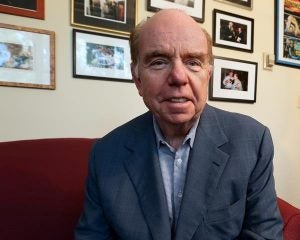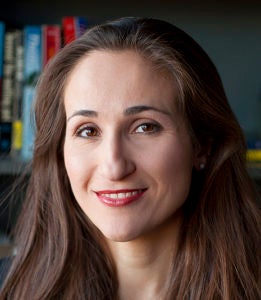Contact: Jenesse Miller, (213) 810-8554 or jenessem@usc.edu
What does history tell us about impeachment and reelection?
 “Some argue that impeachment without a Senate conviction would help Trump, pointing to the Democrats’ modest 1998 midterm gains in the midst of the Clinton impeachment,” said Robert Shrum, director of the Center for the Political Future at the USC Dornsife College of Letters, Arts and Sciences.
“Some argue that impeachment without a Senate conviction would help Trump, pointing to the Democrats’ modest 1998 midterm gains in the midst of the Clinton impeachment,” said Robert Shrum, director of the Center for the Political Future at the USC Dornsife College of Letters, Arts and Sciences.
“The reality is that that Clinton’s impeachment opened the way for George W. Bush to campaign on a promise to restore honor and integrity to the White House. A Trump impeachment, if he is not removed from office, will harden his base, but the revelations are likely to further alienate independents and swing voters and hurt his chances for reelection.”
Shrum is an expert in presidential elections, political advertising and policy and a longtime Democratic political strategist.
Contact: (202) 338-1812 or shrum@usc.edu
How does media coverage effect voter perceptions?
 “The moments highlighted by the media, whether it’s from the impeachment hearings or the debates, sway how candidates perform in the polls and how voters perceive them,” said Christina Bellantoni, professor of professional practice and director of the USC Annenberg School for Communication and Journalism’s Media Center.
“The moments highlighted by the media, whether it’s from the impeachment hearings or the debates, sway how candidates perform in the polls and how voters perceive them,” said Christina Bellantoni, professor of professional practice and director of the USC Annenberg School for Communication and Journalism’s Media Center.
“Every moment of the impeachment hearings is livestreamed and analyzed by people who are influential in the political realm, and anything could be a viral moment. If Trump or the legislators on these committees are being talked about, even if it’s because of an off-color comment or a mistake, it helps them by firing up the base.”
Over her 20 years in journalism, Bellantoni has covered local, state and federal government, along with four presidential campaigns and the White House.
Contact: (202) 725-6820 or christina.bellantoni@usc.edu
How do major donors respond to impeachment?
 “Boring, CSPAN-level material has been elevated, making everyday politicians into reality TV stars with the ability to become social media influencers and rock star fundraisers,” said Dora Kingsley Vertenten, a professor at the USC Price School of Public Policy.
“Boring, CSPAN-level material has been elevated, making everyday politicians into reality TV stars with the ability to become social media influencers and rock star fundraisers,” said Dora Kingsley Vertenten, a professor at the USC Price School of Public Policy.
“Everybody gets a chance to raise money during an impeachment inquiry and you can expect big war chests aimed at the 2020 election campaign from all sides of the political spectrum. Congressional hearings provides the wind beneath all elected representatives’ sails because suddenly, these officials are getting top billing instead of the president. News coverage is convincing to donors that more funds are needed to carry candidates into the election.”
Vertenten is an expert in political consulting, election campaigns, political parties and social media.
Contact: (202) 298-7313 or kingsley@usc.edu
What happens after impeachment runs its course?
 “The real test is how we move forward after the impeachment process, which to many people looks like a mess, no matter what party they identify with,” said Mindy Romero, director of the California Civic Engagement Project at the USC Price School of Public Policy.
“The real test is how we move forward after the impeachment process, which to many people looks like a mess, no matter what party they identify with,” said Mindy Romero, director of the California Civic Engagement Project at the USC Price School of Public Policy.
“It really depends on how elected officials step up after the fact to rebuild the American public’s confidence in the democratic process. We will have to enact new laws and policies to protect against the very concerning behavior we saw from the Trump Administration and from President Trump himself. We must have a bipartisan conversation and actions, and I hope and expect we will see people rise to the occasion as we did after President Nixon’s resignation.”
Romero’s research focuses on political behavior and race/ethnicity and seeks to explain patterns of voting and political underrepresentation, particularly among youth and communities of color in California and the United States.
Contact: (530) 665-3010 or msromero@usc.edu
USC Photo by Olivia Mowry



